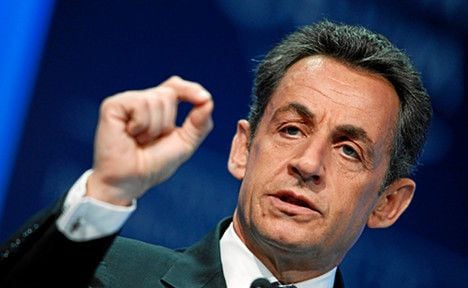With only 10 weeks before the first round of France’s presidential vote on April 22nd, right-wing Sarkozy is lagging in the polls, struggling with image problems and burdened with a moribund economy.
But his team is confident that once officially in the race Sarkozy, a seasoned and charismatic campaigner, will be able to quickly make up ground on frontrunner François Hollande.
“The game is far from over. The polls, the comments, all this will be wiped away in the three weeks before the election,” Prime Minister François Fillon, a long-time Sarkozy ally, told Le Monde on Monday.
“He has maintained his close relationship with the French people. During the campaign he will find the words and ways to reach out to them.”
French media was reporting widely that Sarkozy will make his announcement on the main evening news programme on the TF1 TV channel on Wednesday evening.
Sarkozy has been laying the groundwork for his run in the last several weeks — portraying himself as a defender of traditional values and a steady hand in dealing with the European economic crisis.
In an interview with Le Figaro last week, he made clear he will be pushing a conservative social agenda, vowing to oppose gay marriage and euthanasia and to restrict immigration.
In recent weeks he has also moved to shore up his reformist economic credentials, increasing the sales tax to reduce payroll charges and introducing a 0.1 percent tax on financial transactions.
But his efforts so far have not translated into a boost in opinion polls.
The most recent poll by firm OpinionWay found Hollande leading with 29.5 percent support and Sarkozy trailing with 25.5 percent in the first round.
Under this forecast, Hollande would also extend his lead in the May 6th second round run-off, beating Sarkozy by a score of 56 to 44 percent. Hollande’s spokesman, Benoit Hamon, said Monday the Socialist campaign was feeling “calm” ahead of the expected announcement and denounced Sarkozy as having a “narrow and stunted vision” of France’s future.
Others in the campaign however were warning of a tough battle.
“It will be violent, it will be brutal,” Hollande’s campaign director, Pierre Moscovici, said on Sunday, warning that Sarkozy “feels like he has his back to the wall and he will not back away from anything.”
As well as from the left, Sarkozy is facing a challenge from far-right candidate Marine Le Pen of the National Front, who is polling between 16 and 20 percent and hopes to knock him out in the first round.
Le Figaro said that a small campaign team was already in place and that shortly after his announcement Sarkozy would inaugurate his headquarters in a humble Paris office building.
A source close to Sarkozy told the newspaper the team is counting on a quick bounce in the polls. “If he has not gained three points in the next two weeks, things will get difficult,” the source admitted.




 Please whitelist us to continue reading.
Please whitelist us to continue reading.
Member comments